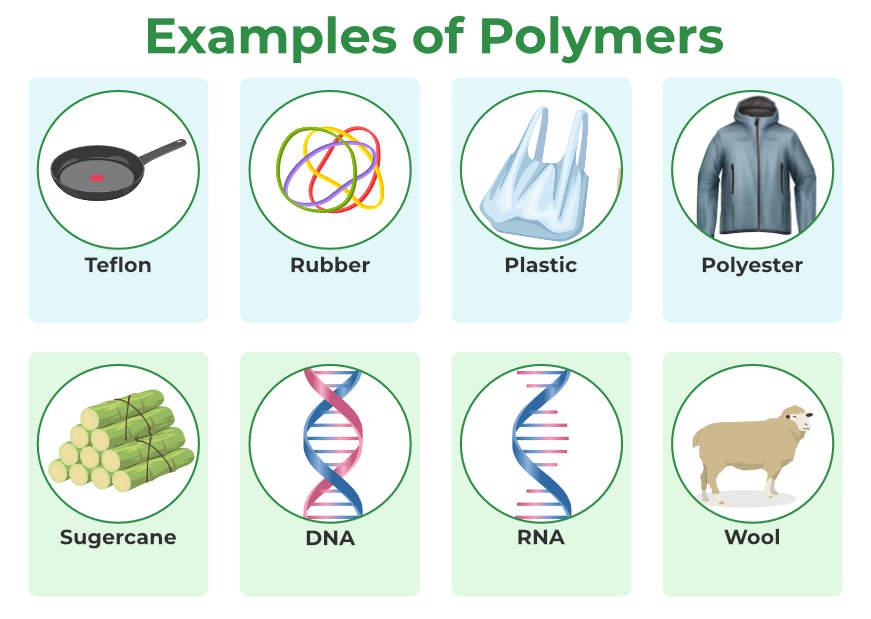Discovering the Varied Applications and Benefits of Polymers in Different Industries
Polymers, with their varied array of buildings and performances, have actually come to be crucial in various sectors, each reaping one-of-a-kind benefits from their application. From boosting safety and security and efficiency in the vehicle sector to reinventing medical devices in the health care industry, polymers play a crucial role.
Automotive Industry Applications
Polymers play a crucial function in enhancing the performance and sturdiness of various components within the auto field. One popular use of polymers in the automotive sector is in the manufacturing of light-weight elements.

Healthcare Sector Benefits
In numerous healthcare applications, the advantages of using polymers are widely acknowledged for their diverse array of beneficial residential or commercial properties. Polymers play an important role in the health care industry because of their adaptability, biocompatibility, and cost-effectiveness. Among the key advantages of polymers in healthcare is their capacity to be tailored to specific demands, such as adaptability, toughness, and biodegradability, making them perfect for a variety of medical applications.
Polymer-based materials are extensively made use of in medical gadgets, such as catheters, implants, prosthetics, and medicine distribution systems, because of their biocompatibility and capacity to resemble natural tissues. These products can minimize the danger of allergic reactions or rejections, boosting individual safety and results. Additionally, polymers are light-weight, making them ideal for wearable clinical tools and making sure individual convenience.
Moreover, polymers enable the growth of innovative therapy techniques, such as hydrogels for cells design and nanocomposites for targeted medicine shipment. Their simplicity of processing and sanitation makes them necessary for maintaining high standards of health in medical care settings. In general, the diverse advantages of polymers contribute substantially to improvements in medical innovation and patient care.
Ecological Advantages of Polymers

In addition, polymers can contribute to energy financial savings due to their lightweight nature. In markets such as transport, light-weight polymer products can help in reducing fuel consumption and greenhouse gas discharges. Furthermore, polymers can allow the growth of energy-efficient items such as insulation products that improve energy conservation in buildings.
In addition, polymers play an essential duty in decreasing water pollution. As an example, making use of polymer-based purification systems can properly remove toxins and impurities from wastewater, safeguarding water sources and ecosystems. Overall, the environmental advantages of polymers make them beneficial properties in promoting sustainability and environment-friendly practices throughout numerous markets.
Polymers in Electronics and Modern Technology
Considering the raising demand for ingenious and sustainable solutions in modern-day markets, the integration of innovative polymer modern technologies in the realm of electronics and modern technology has become an essential approach for driving effectiveness and efficiency. Polymers have revolutionized the electronic devices market by making it possible for the manufacturing of lighter, more adaptable, and sturdy digital devices. From smart devices to medical tools, polymers play a critical function in boosting product layout and capability.
One substantial benefit of polymers in electronics is their protecting buildings, which assist protect delicate digital elements from ecological factors and electric interference. In addition, polymers are important in the growth of flexible screens, wearable modern technology, and printed electronic devices, offering limitless opportunities for creating wise and interconnected tools.
Furthermore, using polymers in digital product packaging has actually led to improvements in miniaturization and thermal monitoring, improving the general efficiency and integrity of digital systems. As innovation from this source continues to evolve, the flexibility and versatility of polymers will certainly drive additionally technology in the electronic devices sector, forming the future of modern technology.
Role of Polymers in Construction and Infrastructure
Polymers use many benefits in the building industry due to their flexibility, sturdiness, and cost-effectiveness. One essential function of polymers in building is their use in finishings and sealants, providing protection versus environmental elements such as moisture, UV radiation, and deterioration.
Additionally, polymers his response play a vital function in sustainable building techniques by allowing the development of energy-efficient frameworks. Insulating products made from polymers help manage indoor temperature levels, reducing the need for heating and cooling down systems and ultimately decreasing energy usage. Additionally, the usage of polymer-based composites in framework jobs such as bridges and roadways enhances their long life and decreases maintenance prices. In general, the unification of polymers in building and construction and facilities displays their significant influence on contemporary design practices.
Final Thought
To conclude, polymers play an important duty in numerous sectors such as automotive, healthcare, ecological, electronic devices, and building and construction. Their functional residential properties make them beneficial in developing cutting-edge services and products. From enhancing fuel efficiency in cars to enhancing medical devices, polymers supply various benefits. Furthermore, their effect on minimizing waste and advertising sustainability highlights their value in contemporary applications. The extensive use polymers demonstrates their significant payment to progressing modern technology and enhancing high resource quality of life.